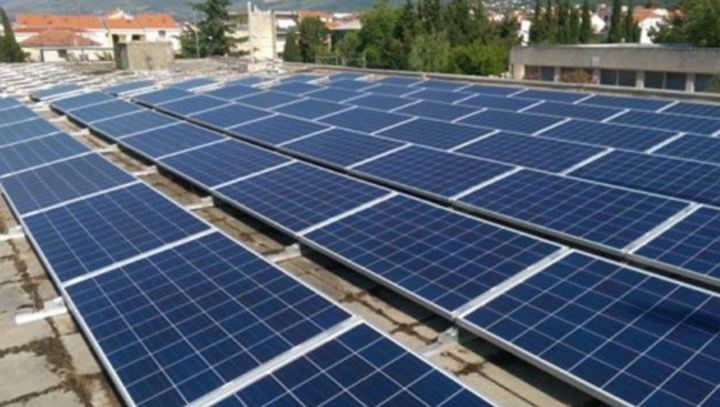The United Nations Development Programme (UNDP) has partnered with the Rural Electrification Agency (REA) to accelerate Nigeria’s shift toward clean energy, a move aimed at boosting sustainable development, reducing energy poverty, and strengthening the country’s climate resilience. The partnership, formally announced in Abuja, represents a major step in aligning global development support with Nigeria’s ambitious energy and environmental goals.
Nigeria, Africa’s largest economy and most populous nation, faces significant energy challenges. More than 85 million people lack access to reliable electricity, according to World Bank data, while many others rely on costly and polluting alternatives such as diesel and petrol generators. The UNDP–REA collaboration is designed to address these long-standing gaps by scaling renewable energy projects, particularly in underserved rural communities.

At the launch event, the UNDP Resident Representative in Nigeria described the partnership as a critical step toward inclusive economic growth, stressing that energy access is not only a climate priority but also a foundation for improved education, healthcare, and livelihoods. She emphasized that clean energy plays a transformative role in addressing poverty, inequality, and environmental degradation, and reaffirmed UNDP’s commitment to supporting Nigeria’s development vision.
For the REA, which has led the implementation of off-grid electrification programmes through solar mini-grids and standalone solar systems, the partnership offers an opportunity to expand its reach. The Managing Director of the agency noted that the collaboration would unlock new financing opportunities, introduce global best practices, and attract more private sector investment into Nigeria’s clean energy market. He explained that the initiative aims to ensure that renewable energy is not only deployed at scale but also maintained sustainably to meet long-term needs.
Energy experts have welcomed the initiative, highlighting the urgent need for Nigeria to accelerate its energy transition. Despite being a major oil producer, the country suffers from chronic electricity shortages that undermine productivity, discourage investments, and worsen living standards. Analysts argue that decentralised renewable energy solutions, such as solar mini-grids and home systems, can provide faster and more cost-effective electrification compared to conventional grid expansion, especially in remote and rural areas.
The collaboration also aligns with Nigeria’s climate goals, particularly its pledge to achieve net-zero carbon emissions by 2060. By shifting reliance from fossil fuels to renewable sources, the UNDP–REA initiative supports the country’s Nationally Determined Contributions (NDCs) under the Paris Agreement. It further complements the Federal Government’s agenda to achieve universal energy access by 2030, in line with the United Nations Sustainable Development Goal (SDG) 7.
A key element of the partnership will be the development of innovative financing models to attract capital into Nigeria’s renewable energy sector. This includes leveraging blended finance, results-based financing, and risk-sharing mechanisms to encourage small and medium-sized enterprises (SMEs) and larger investors to participate in the clean energy space. According to officials, the goal is to create a thriving ecosystem where public and private actors collaborate to expand access and affordability.
Beyond electrification, the partnership is expected to generate ripple effects across several sectors. In agriculture, clean energy will enable farmers to power irrigation systems, cold storage facilities, and processing equipment, thereby improving productivity and reducing post-harvest losses. In healthcare, solar-powered facilities will ensure reliable electricity for rural clinics, supporting vaccine storage, medical equipment, and essential services. For education, reliable power will facilitate digital learning, extend study hours, and enhance overall learning outcomes.
Particular emphasis is being placed on the role of women and youth in the clean energy transition. By providing access to affordable energy, the programme will empower women entrepreneurs, expand opportunities for youth in renewable energy enterprises, and reduce the social and economic burdens associated with energy poverty. Officials argue that this inclusivity is critical to ensuring that the energy transition leaves no one behind.
Stakeholders also highlighted the importance of capacity-building under the initiative. Beyond infrastructure deployment, the partnership will support training for local technicians, policymakers, and communities to ensure sustainability. By strengthening local capacity, the initiative aims to avoid reliance on external expertise and create long-term employment opportunities within Nigeria’s green economy.
The broader implication of the UNDP–REA partnership is that Nigeria could emerge as a regional leader in clean energy adoption. With its large population, abundant renewable resources, and growing market demand, the country is well positioned to demonstrate how innovative models can bridge the energy access gap while driving climate action. Observers note that the success of the programme could serve as a blueprint for other African nations struggling with similar challenges.
However, experts caution that Nigeria must address regulatory and policy barriers that often discourage private sector participation. Consistent policies, effective incentives, and streamlined processes are essential to sustaining investor confidence in the renewable energy market. The UNDP and REA have both pledged to work with government agencies to ensure that policies support, rather than hinder, the clean energy agenda.
Ultimately, the UNDP–REA partnership reflects a shared commitment to building a more sustainable, inclusive, and prosperous Nigeria. It signals an important recognition that energy access is at the heart of national development and that addressing the crisis requires innovative collaboration between local agencies and international partners.
In the coming months, both organisations are expected to roll out pilot projects in targeted communities, with a plan to scale successful models nationwide. The expectation is that, with stronger financing, community engagement, and technical innovation, the partnership will deliver measurable progress in Nigeria’s clean energy transition.
For millions of Nigerians still living in darkness, this collaboration offers renewed hope of a brighter future—one where clean, reliable, and affordable energy powers not just homes, but also opportunities for growth and prosperity.
Support InfoStride News' Credible Journalism: Only credible journalism can guarantee a fair, accountable and transparent society, including democracy and government. It involves a lot of efforts and money. We need your support. Click here to Donate
